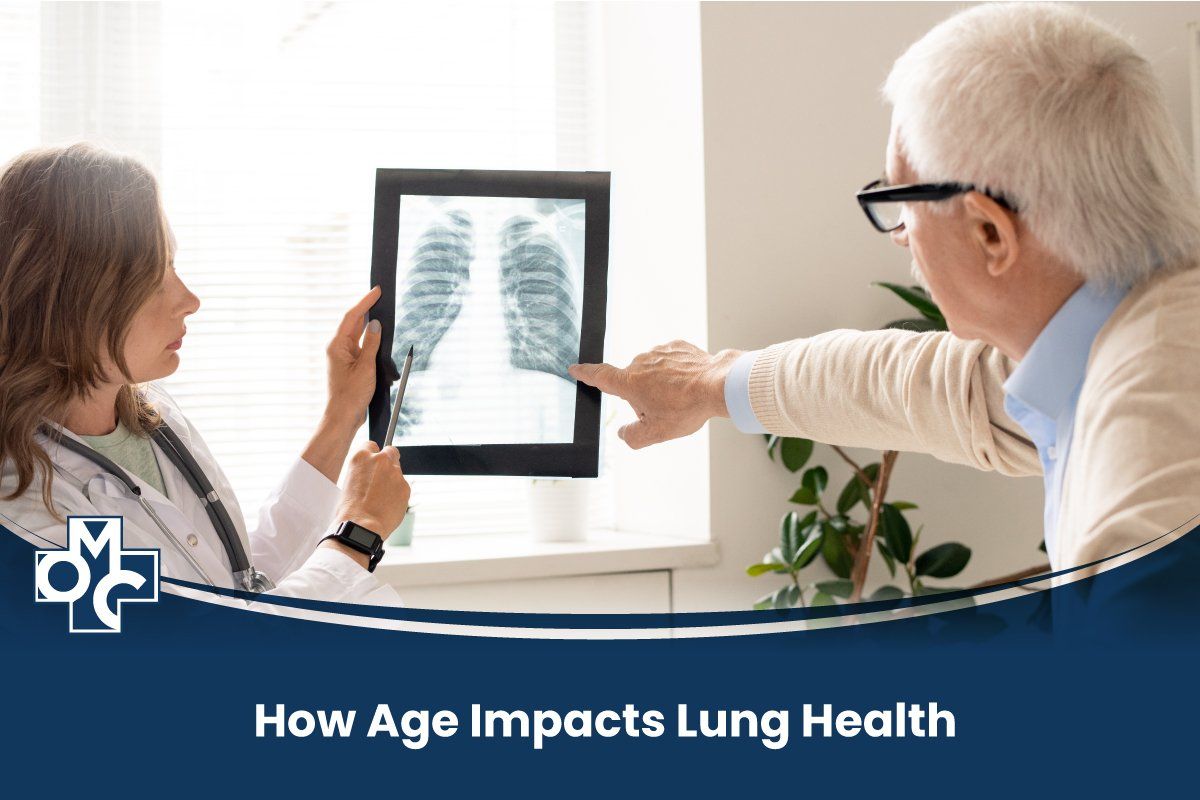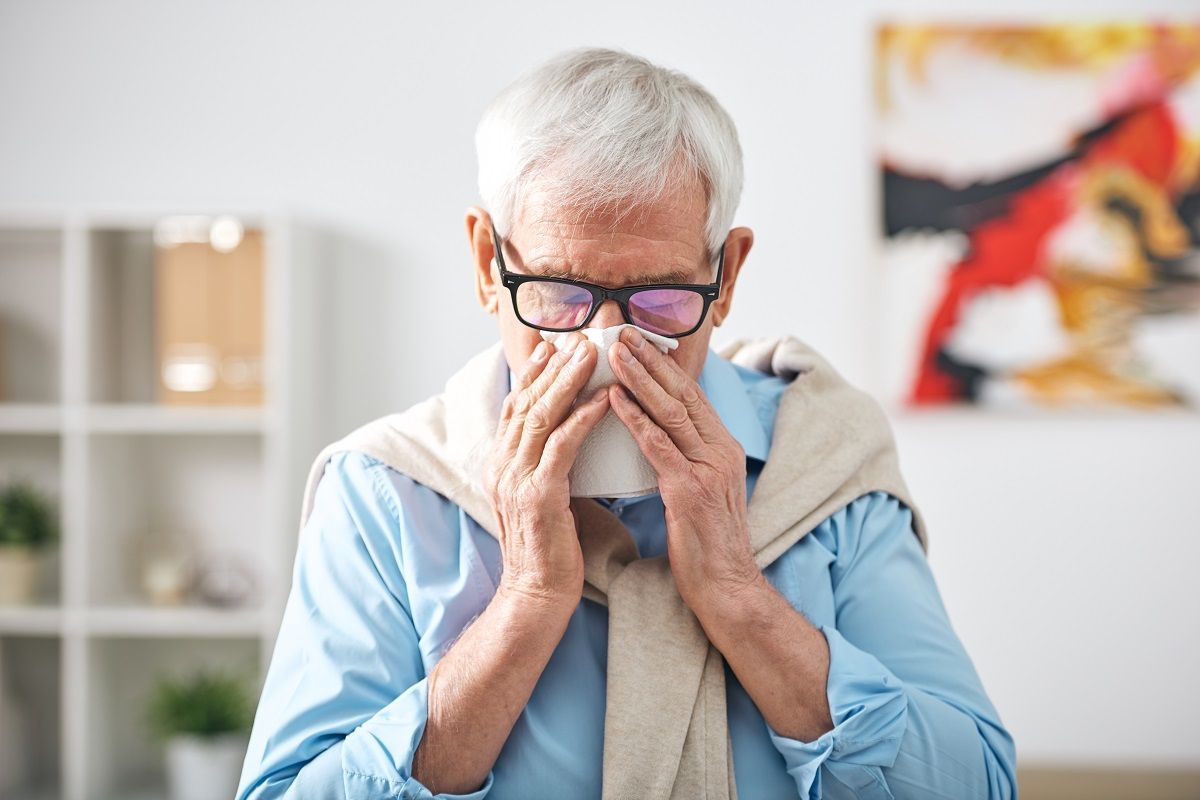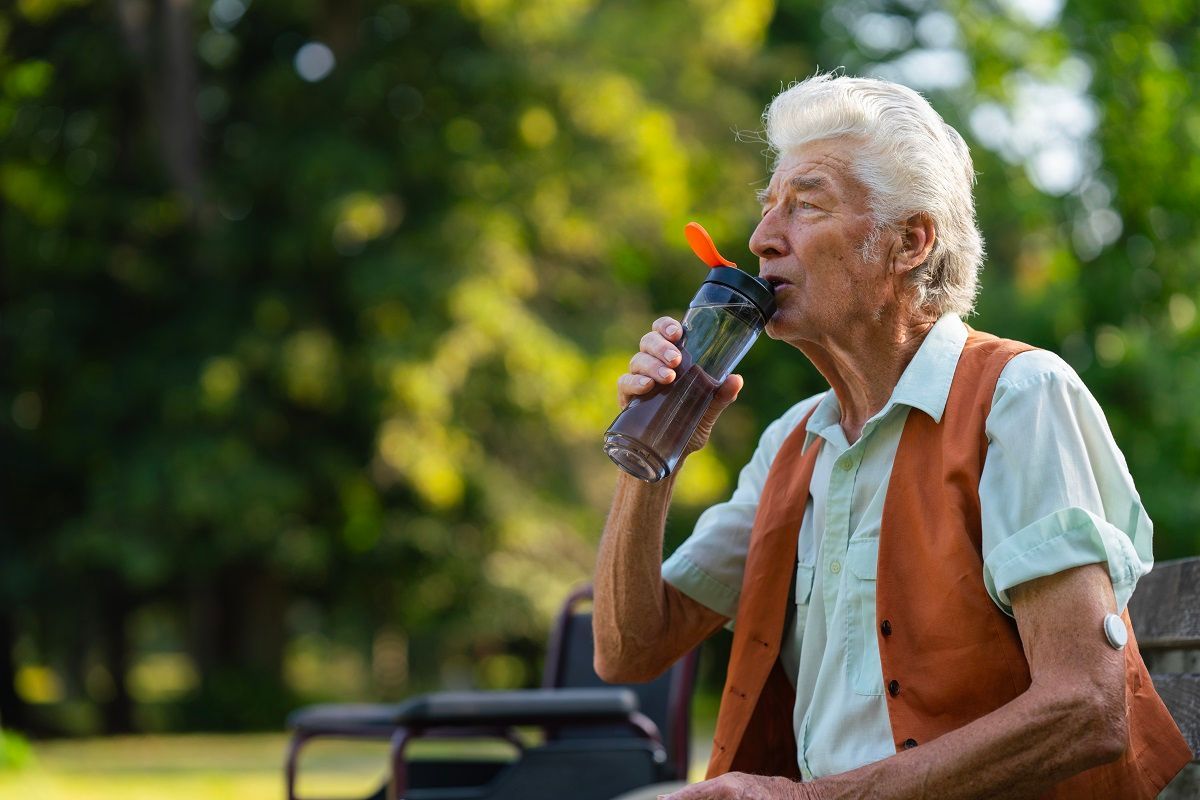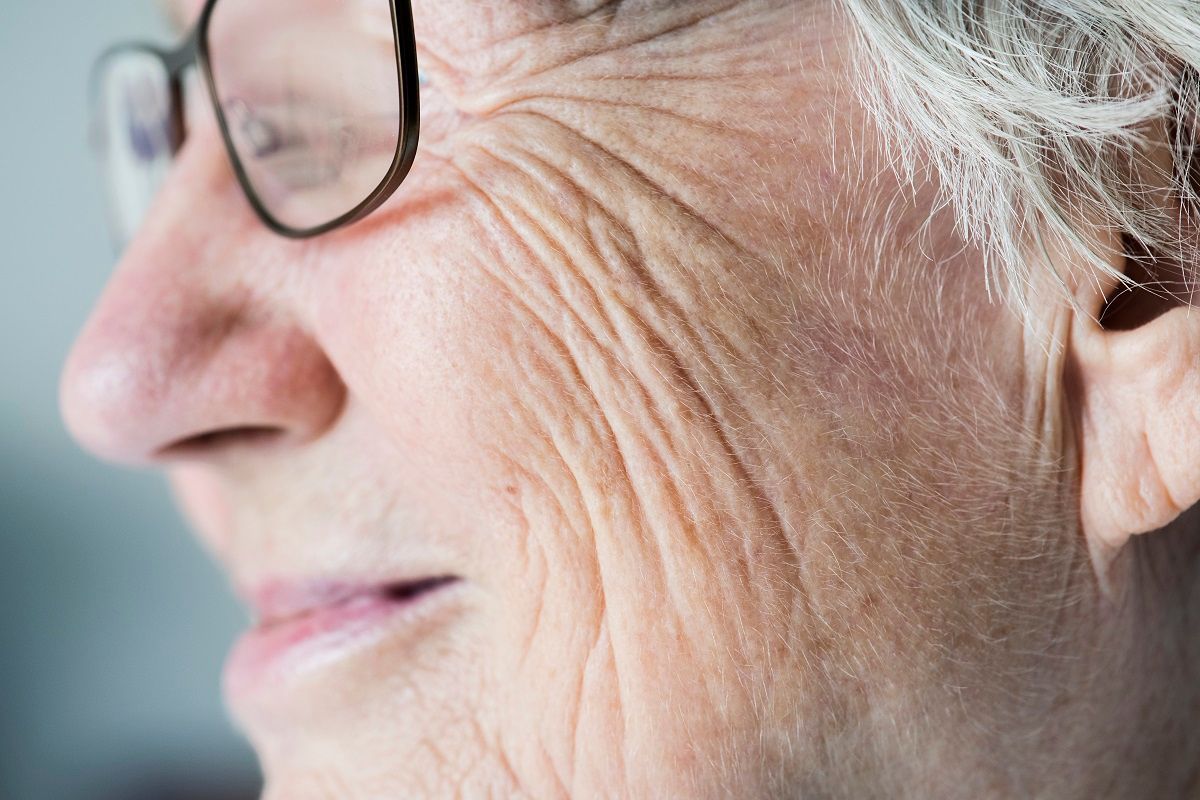Our Location
Elige tu idioma:
How Does Age Impacts Lung Health

Most people don't think about their lungs until there's a problem. Our breathing is so automatic that unless something goes wrong, we don't even consider how important this organ system is to our overall health.
A healthy lung means better fitness, increased energy levels, and improved mental health. That being said, it's important to note that age plays an essential role in how our lungs function over time. When we grow older, some factors can affect our ability to breathe correctly and cause serious health problems.
As we observe Respiratory Care Week (Oct. 24–30) with the American Association for Respiratory Care, we'll highlight age-related lung changes and ways to achieve a healthy respiratory system.
How Do the Lungs Work with Other Systems?
The lungs are the organs that allow us to breathe. They transport oxygen from the air to the bloodstream, eliminate carbon dioxide from the body, and discharge it as we exhale. The lungs work with the heart, the brain, and other organs to ensure your body can perform at its best. It helps
- Regulate blood pressure.
- Supports the sense of smell.
- Preventing harmful substances from entering your body.
- Keep us warm by helping our bodies get rid of excess heat.
How Does Age Affect Lung Capacity?
Lung health is vital at every stage of life, but it becomes especially critical as we age. The normal lung capacity by age is 6 liters. As you get older, your lungs may also lose some of their elasticity; thus, your lung capacity will also decrease.
Our lung capacity naturally diminishes due to normal wear and tear, so we have less air available. A few body changes affect how our lungs work as we age. These changes include:
- Diaphragm muscles can become weak with age. The elasticity of our lungs decreases, making it harder for them to expand and contract.
- Our airways narrow over time, which makes it harder to pull air into our lungs.
- We lose muscle mass and bone density. We can't breathe as deeply or efficiently with less muscle and bone.
- There is a decrease in the sensitivity of the nerves to foreign particles. Particles can damage lung tissue if they build up in the lungs.
- Your immune system can weaken as you grow older, resulting in a greater vulnerability to infection.
- Our alveoli become less elastic and more rigid. This change means they don't expand as easily when inhaling, making it harder to take in a full breath.
- The rib cage bones may get smaller, making it harder for your lungs to expand.
Decreased lung capacity affects our ability to take in enough oxygen while we exercise or engage in other activities. These age-related lung changes can lead to
- decreased stamina
- increased fatigue
- a greater risk of heart disease
- higher susceptibility to respiratory diseases like pneumonia, asthma, bronchitis, chronic obstructive pulmonary disease (COPD), among others.
Symptoms of a Severe Lung Disease
It's critical to see your doctor right away if you are experiencing severe lung symptoms. Among the warning signs of lung disease are:
- wheezing
- coughing up blood
- a loud breathing noise
- breathlessness even after minimal exertion
- chronic or persistent cough lasting more than a month
- pain in the chest that lasts for more than four weeks
- an abnormal amount of mucus that persists for more than a month
8 Tips to Improve Lung Elasticity and Function
Here are some tips to keep your lungs in tip-top shape and maintain a good quality of life.
- Exercise regularly
- Quit smoking immediately
- Get yearly flu shots
- Avail a pneumococcal (pneumonia) vaccine
- Eat a healthy diet
- Do breathing exercises
- Keep indoor air clean and fresh
- Get regular health screenings
1. Exercise regularly.
An individual who is overweight and obese is more likely to develop lung disease. Physical activity helps keep the lungs healthy and may prevent problems with breathing or exercise. Ideally, you should engage in at least 30 minutes a day of physical activity. If you have lung disease or other medical conditions, speak to your physician before beginning an exercise regimen.
Swimming is a great low-impact activity that won't put too much stress on your joints or muscles but will still give you an aerobic workout that will help strengthen your lungs over time with regular use and training sessions!
2. Quit smoking immediately.
Smoking damages the airways and can lead to lung cancer, which makes quitting smoking one of the best things you can do for your respiratory health. Additionally, it impedes their ability to fight off infections and diseases like pneumonia and tuberculosis.
If you smoke and want to quit, talk to your doctor about nicotine replacement therapy or counseling. The sooner you stop smoking, the better off you'll be in the long run.
3. Get yearly flu shots.
The flu vaccine helps protect you against influenza (flu), which can become a serious disease that can lead to pneumonia (lung inflammation) and other complications. Pneumonia often leads to hospitalization and may even become fatal, especially in people 65 years or older and individuals with weakened immune systems, either due to disease or medication. You can get a seasonal flu vaccine at your doctor's office, local pharmacy, or community health center.
4. Avail pneumococcal (pneumonia) vaccines.
The pneumococcal conjugate vaccine (PCV13) protects against strains of Streptococcus pneumoniae bacteria, which can cause pneumonia and other respiratory infections. The CDC recommends it for
- all adults over 65 years old
- adults living with chronic conditions that put them at risk for pneumococcal disease
- those who have received previous pneumococcal vaccines
If you are in these groups, talk with your doctor about getting the vaccine if you haven't had it yet.
5. Eat a healthy diet.
A diet rich in vitamins and minerals and low in saturated fat can help maintain good lung function and a healthy weight. Here are a few tips to help you make the right food choices:
- Eat a balanced diet that includes fruits, vegetables, whole grains, and lean proteins.
- Limit your intake of salt, sugar, and processed foods.
- Choose foods with low saturated fat and cholesterol, such as fish and chicken breast.
- Choose beverages wisely — limit sugary drinks and avoid alcohol use. Instead, drink plenty of water every day.
6. Do breathing exercises.
Breathing exercises can help improve lung health by increasing the amount of oxygen delivered to your blood and improving the efficiency of your lungs exchanging gases with blood. These exercises also help relax your muscles, which reduces stress on your heart and improves blood circulation throughout your body.
7. Keep indoor air clean and fresh.
Over time, breathing in dust or other pollutants can damage the lungs' ability to clear out harmful particles. Use an air purifier or humidifier to control dust mites and other allergens while maintaining humidity levels, so they're comfortable. Moreover, avoid secondhand smoke as much as possible.
8. Get regular health screenings.
Regularly undergo health screenings, including a pulmonary function test. This test measures how well your lungs are functioning and can detect early signs of disease. Your doctor will help determine if you need a screening based on age, gender, and family history. In addition, if you have asthma or other respiratory conditions, make sure you have access to medications that can help you manage your symptoms and prevent flare-ups.
Maintain Good Respiratory System!
There's no doubt that the lungs are one of your body's most vital organs. They play a huge role in every aspect of your health, from breathing to digestion. Fortunately, you can do many things to keep them healthy for many years to come.
Maintain good respiratory health by following our tips discussed above and by getting regular check-ups. If you're looking for "lung screenings near me," don't hesitate to consult with Ocana Medical Center. Call us today at (813) 968-8314 or book an appointment online.
Ocana Medical, located in Tampa, FL, aims to bring you as much information as possible to keep you healthy. We're in this together. #ocanacares
“Respect. Compassion. Quality. Integrity. These are the values on which Ocana Medical Center was built. Our aim isn’t just to treat you today. We hope to earn your trust and be your healthcare provider for life.”
©2023 Ocana Medical Group, Inc.
USEFUL LINKS
GET IN TOUCH
Call Us Today
Send us Email
Our Location
Ocana Medical Center | All Rights Reserved.












